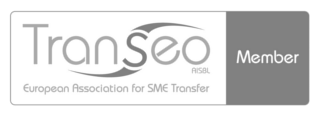Taxation in sales and business acquisitions
The party who sells their property receives the proceeds of the sale and pays taxes for them. If the entrepreneur’s shares, perhaps the whole limited liability company, are sold, the entrepreneur pays the taxes. If business operations and assets are sold, the limited liability company receives the proceeds and pays the taxes. Private entrepreneurs don’t need to consider these options, as their only option is an asset sale.
If the sold shares have been owned for over 10 years, total tax is 18.0–20.4 %, and if owned less than 10 years 24.0–27.2 %.
When calculating tax, an assumed acquisition expenditure of 40 % is first deducted from the selling price if the sold business was bought over 10 years ago. In all other cases 20 % is deducted. After this, tax is 30 % up to 30 000 euros. Anything over 30 000 euros is taxed by 34 %.
For example, if the selling price is 100 000:
| Time of ownership | Less than 10 years | Over 10 years |
|
Assumed acquisition expenditure
|
20 % | 40 % |
|
Taxable capital gain
|
80 000 | 80 000 |
|
of which exceeds 30 000
|
50 000 | 30 000 |
|
taxed by 34 %
|
17 000 | 10 200 |
| less than 30 000 | 30 000 | 30 000 |
|
taxed by 30 %
|
9 000 | 9 000 |
| Taxes in total | 26 000 | 19 200 |
| Total tax | 26 % | 19,2 % |
Taxation can be lower than this if the acquisition expenditure of the shares over ten years ago was over 40 % of the selling price or less than 10 years ago over 20 % of the selling price. In these cases the true acquisition expenditure is deducted from the selling price first and tax is paid for the what’s left. This rarely happens.
In terms of taxation, it is usually better to sell shares than to execute the realization by selling assets first and then repatriating capital gains in different ways. This is true especially when you’re in a rush to move the money to your own account. With time, by slowly repatriating the assets from the business, the situation could be the opposite. There is no single right answer.
In terms of taxation, financing and minimizing risks, it is generally more sensible for the buyer to buy assets rather than shares. It is not possible to make depreciations from acquisition expenditures, as you could with equipment and goodwill. Higher taxation on stock and share sales cause lower revenue streams for buyers than in asset sales.
Generally, the only tax the buyer pays for the acquisition is asset transfer tax (1.6 % of the selling price in stock and share sales and 4 % in real estate sales in 2016). This isn’t paid in asset sales if the sale doesn’t include shares or real estate. A share in a partnership isn’t a security, which means no asset transfer tax needs to be paid.
Selling prices are generally exempt from VAT, so there is no need to worry about that either. The business being sold pays the VAT for the fees of experts used to execute the asset sale and in stock and share sales the entrepreneur themself pays. VAT can’t be deducted in taxation if an assumed acquisition expenditure is used.
If the sale is made with anything other than fair value, the consequences might be tax implications for hidden dividend distribution or a gift or a gift-like sale. Tax penalties for hidden dividend distribution fall upon both the seller and the recipient of the hidden dividend. These risks can be clarified and avoided by a professionally made request for an advance ruling from the tax authority. If the buyer is part of the family or a close relative, it is worth looking into tax relief rules related to succession, which are covered in Succession.
In asset sales, the residual values from the balance sheet can be deducted from the selling price. Proceeds from goodwill value are usually fully taxable income for the seller. Transfer gains from real estate and securities are taxable capital income, except for limited liability companies.







